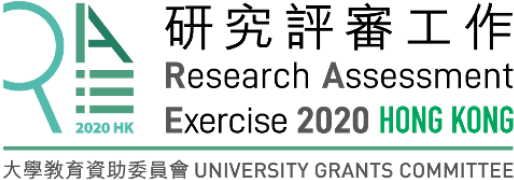Unit of Assessment:
Impact locations:
?Asia
Hong Kong, China (3), Bangkok (1), China (Mainland China) (1), Japan (1)
North America
United States (2)
Europe
England (1)
Case Study
Making Precision Medicine a New Paradigm in Management of Advanced Stage Lung Cancer
1. Summary of the impact
Lung cancer is deadly, but by making precision medicine a new paradigm, it has become possible to improve the survival by 3-4 folds for thousands of patients with oncogene-driven cancer. Professor Mok and his team are the first to confirm clinical application of precision medicine for EGFR mutation positive lung cancer and has subsequently expanded the concept to ALK and PD-L1 positive disease. Based on his researches, oncologists from around the world must check EGFR, ALK and PD-L1 status prior to treatment decision. With his collaborations, multiple generations of targeted therapy were developed and the sales of these drugs in 8 major markets totaled at USD$ 6.2 billion in 2015.
2. Underpinning research
Professor Mok started his career at the Chinese University of Hong Kong in 1996 and established the Lung Cancer Research Group in 1998. IPASS study, which was designed in 2005 and published in 2009, is the first randomized study confirming the superiority of targeted therapy over chemotherapy in patient with EGFR mutation, and vice versa in patient without EGFR mutation. (Ref 3.1) This milestone publication has been cited for over 5000 times (ISI Web of Science), reflecting its impact on lung cancer management. In order to complete the making of a new paradigm, Professor Mok has also conducted the ASPIRATION study that confirmed the improvement of progression free survival by allowing treatment beyond progression.(JAMA Oncology 2016) and the IMPRESS study that confirmed continuation of targeted therapy with chemotherapy to be unacceptable.(Ref 3.5) More importantly, his subsequent research has established the treatment strategy for resistant disease. About 50% of patients with treatment resistance would acquire the T790M mutation. The AURA 3 study compared Osimertinib, a third generation targeting drug, with chemotherapy and confirmed superiority in response rate and survival.(Ref 3.3) From then on, all patients who fail one line of targeted therapy must be tested for presence of T790M. This paper was chosen as one of the ten most notable articles in the New England Journal of Medicine in 2017.
ALK translocation is the other important driver oncogene in lung cancer. Crizotinib is the first targeted therapy for patient with ALK translocation. In collaboration with Australia, Professor Mok co-led the PROFILE 1014 study, the first randomized trial that showed superiority of Crizotinib over chemotherapy in patients with ALK positive lung cancer.(Ref 3.2) This study is also the first to document prolongation of median survival to beyond 4 years in ALK positive patients. However, crizotinib falls short in penetration to the brain and many patients eventually died from brain metastasis. Alectinib is a second generation drug with higher efficacy to brain. The ALEX is a randomized phase III study comparing alectinib with crizotinib. The study has demonstrated improvement of median progression free survival by more than 3 folds (from 10.1 months to 34.8 months).(Ref 3.4) The drug can also reduce incidence of tumor progression in the brain by 4 folds (9.1% versus 41%). Alectinib is now the new standard first line therapy for patient with ALK positive lung cancer.
Immune checkpoint inhibition targeting PD-L1 is a novel approach engaging the immune cells to tackle the cancer. Pembrolizumab was previously approved as second line therapy for patients with lung cancer. KEYNOTE 42 study compared pembrolizumab with chemotherapy in patients with PD-L1 positive lung cancer and confirmed improvement in overall survival.(Ref 3.6) Based on this study led by Professor Mok, US Food and Drug Administration has approved pembrolizumab as first-line therapy for lung cancer patients with PD-L1 expression on April 11, 2019.
3. References to the research
- Mok, T. S., Wu, Y. L., Thongpraser, S., Yang, C. H., Chu, D. T., Saijo, N., Sunpaweravong, P., Han, B. H., Margono, B., Ichinose, Y., Nishiwaki, Y., Ohe, Y., Yang, J. J., Chewaskulyong, B., Jiang, H. Y., Duffiekd, E. L., Watkins, C. L., Armour, A. A., & Fukuoka, M. (2009). Gefitinib or carboplatin-paclitaxel in pulmonary adenocarcinoma. N Engl J Med., 361(10), 947-57. (First and corresponding author)
- Solomon, B., Mok, T., Kim, D.W., Wu, Y.L., Nakagawa, K., Mekhail, T., Felip, E., Cappuzzo, F., Paolini, J., Usari, T., Iyer, S., Reisman, A., Wilner, K.D., Tursi, J., Blackhall, F. & PROFILE 1014 Investigators. (2014). First-Line Crizotinib versus Chemotherapy in ALK-Positive Lung Cancer. N Engl J Med., 371(23), 2167-77. (co-first author)
- Mok, T.S., Wu, Y.L., Ahn, M.J., Garassino, M.C., Kim, H.R., Ramalingam, S.S., Shepherd, F.A., He, Y., Akamatsu, H., Theelen, W.S.M.E., Lee, C.K., Sebastian, M., Templeton, A., Mann, H., Marotti, M., Ghiorghiu, S., & Papadimitrakopoulou, V.A. & AURA3 Investigators. (2017). Osimertinib or Platinum–Pemetrexed in EGFR T790M–Positive Lung Cancer. N Engl J Med, 376(7):629-640. (First and corresponding author)
- Peters, S., Camidge, D.R., Shaw, A.T., Gadgeel, S., Ahn, J.S., Kim, D.W., Ou, S.I., Pérol, M., Dziadziuszko, R., Rosell, R., Zeaiter, A., Mitry, E., Golding, S., Balas, B., Noe, J., Morcos, P.N., Mok, T. & ALEX Trial Investigators. (2017). Alectinib versus Crizotinib in Untreated ALK-Positive Non–Small-Cell Lung Cancer. N Engl J Med, 377(9):829-838. (Senior and corresponding author)
- Soria JC, Wu YL, Nakagawa K, Kim SW, Yang JJ, Ahn MJ, Wang J, Yang JCH, Lu Y, Atagi S, Ponce C, Lee DH, Liu Y, Yoh K, Zhou JY, Shi X, Webster A, Jiang H, Mok TS. Gefitinib plus chemotherapy versus placebo plus chemotherapy in EGFR-mutation-positive non-small-cell lung cancer after progression on first-line gefitinib: (IMPRESS): a phase 3 randomised trial. (2015) Lancet Oncology 16(8):990-998. (Senior author)
- Mok TSK, Wu YL, Kudaba I, Kowalski DM, Cho BC, Turna HZ, Castro G Jr, Srimuninnimit V, Laktionov KK, Bondarenko I, Kubota K, Lubiniecki GM, Zhang J, Kush D, Lopes G; KEYNOTE-042 Investigators. (2019). Pembrolizumab versus chemotherapy for previously untreated, PD-L1-expressing, locally advanced or metastatic non-small-cell lung cancer (KEYNOTE-042): a randomised, open-label, controlled, phase 3 trial. Lancet. 393(10183):1819-1830. (First and corresponding author)
4. Details of the impact
This series of clinical trials, led or co-led by Professor Tony Mok, have made precision medicine a new paradigm for management of lung cancer. Apart from improving the survival and quality of life of lung cancer patients, these researches have created major impacts on pharmaceutical and molecular diagnostic industry.
EGFR MUTATION
IPASS study (Ref 3.1) is the first randomized study that confirmed the role of biomarker selection by EGFR mutation. The study has two significant impacts. First is formal approval of gefitinib as first line therapy for patients with EGFR mutation positive lung cancer. It is estimated that about 1.3 million persons are newly diagnosed of lung cancer every year and about 30% (about 400,000) are EGFR mutation positive. It is now a standard practice to offer gefitinib or one of the other approved EGFR mutation inhibitor once the EGFR mutation status is confirmed. Since publication of IPASS in the New England Journal of Medicine, gefitinib was approved by over 80 countries as first line therapy for patients with EGFR mutation. This has also been adopted as standard practice by multiple international guidelines including NCCN, AMP/IASLC/CAP, ASCO and ESMO. Global sale of gefitinib has dramatically risen since 2009, and by 2015 and 2016, total global annual revenue was USD $518 million and $528 million, respectively.
Half of the EGFR mutation positive patients (estimated at 200,000 annually) who received first line targeted therapy would develop the resistant T790M mutations. The AURA 3 study (Ref 3.3) confirms the use of Osimertinib for T790M positive patients in 2017 and the sales has skyrocketed. In USA alone, annual sale in 2018 was USD$259 million. Projected sales of osimertinib may reach 1.7 billion dollars by 2025.
Impact of the IPASS and AURA studies has also extended to the molecular diagnostic business. All lung cancer patients with adenocarcinoma would be tested for presence of EGFR mutations. The cobas®EGFR Mutation Test v2 kit by Roche Molecular System was approved by FDA as the companion diagnostic tool for EGFR mutation on June 1, 2016. The indication was extended to T790M mutation on April 18, 2018.
ALK TRANSLOCATION
ALK translocation is another key driver oncogene that may account for 5% of all lung cancer (estimated at 65,000 annually). Crizotinib is the first targeted therapy designed for this mutation, and the PROFILE 1014 study is the first to demonstrate improvement in efficacy and survival. Similar to the situation with EGFR mutation, his study provides the foundation for approval of the drug in multiple countries including USA, China and Japan. Multiple international guidelines including NCCN, AMP/IASLC/CAP, ASCO and ESMO to include ALK mutation as a mandatory upfront biomarker. Global annual sales of crizotinib in 2017 and 2018 was USD$594 and $524 million, respectively.
Alectinib is a second generation ALK inhibitor with ability to penetrate the brain. The ALEX study confirmed prolongation of progression free survival by 3 folds and reduction of the chance of progression in the brain by 4 folds. Overall survival rate at 4 years was above 60%. This drug has now taken over crizotinib as the new standard first line therapy.
PD-L1 POSITIVE LUNG CANCER
Pembrolizumab was first approved in 2017 for patients with PD-L1 expression >50%, which accounts for about 25% of all lung cancer patients. Only with the result from KEYNOTE 042 (Ref 3.6) FDA has approved the drug for patient with PD-L1 expression >1%. This implies that an additional 30% of patients would benefit from the drug. Given the approval was only made in April 2019, the impact on revenue is not available at this juncture.
ENTREPRENEURSHIP
Our research has created a new paradigm for precision medicine for lung cancer. Knowing molecular diagnosis to be the essential tool, Professor Mok has co-founded Sanomics Limited with Professor Dennis Lo, Professor Rossa Chiu and Professor Allen Chan from the Chinese University of Hong Kong in 2015. The company now owns two commercial molecular laboratories in Hong Kong and Bangkok, employing 38 and 6 staffs, respectively. All staffs in Hong Kong are graduate of local universities. In addition to testing EGFR mutation from plasma cell free DNA, Sanomics also offers a range of services including PD-L1, BRCA, BRAF and genome profiling. Current valuation of the company is at USD$42 million.
5. Sources to corroborate the impact
i. Non-executive director of AstraZeneca since Jan 2019: AstraZeneca is ranked the 7th largest pharmaceutical company in the world. Professor Mok was invited to join the Board of Director for his achievement in medical oncology. He is the only Asian invited to this position.
ii. Board of Director of American Society of Clinical Oncology 2018 to now: American Society of Clinical Oncology is the largest and most influential academic organization for oncology. Professor Mok is invited to the leadership position.
iii. Fellow of American Society of Clinical Oncology 2017. This fellowship is awarded to oncologist with significant contribution to service and research.
iv. 2017 The State Scientific and Technological Progress Award second-class award
v. Prof Tony Mok has been named by Clarivate Analytics in the list of “Highly Cited Researchers 2018”
vi. 2014 年度高等學校科學研究優秀成果獎(科學技術) - 自然科學二等獎 ; 項目名稱 : 肺 癌研究的個體化治療 (2014 Dec) Second-class award in Natural Sciences — Personalized medicine for lung cancer from the Ministry of Education (MoE) in Dec 2014
vii. NCCN Guidelines for patient version 1, 2017
viii. ASCO Clinical Practice Guideline Update, J Clin Oncol 33:3488-3515, 2015
ix. ESMO Guidelines, Ann Oncol (2012) 23 (suppl_7): vii56-vii64
x. NEJM Notable Article 2017 http://cdn.nejm.org/pdf/NEJM-Notable-Articles-2017.pdf

